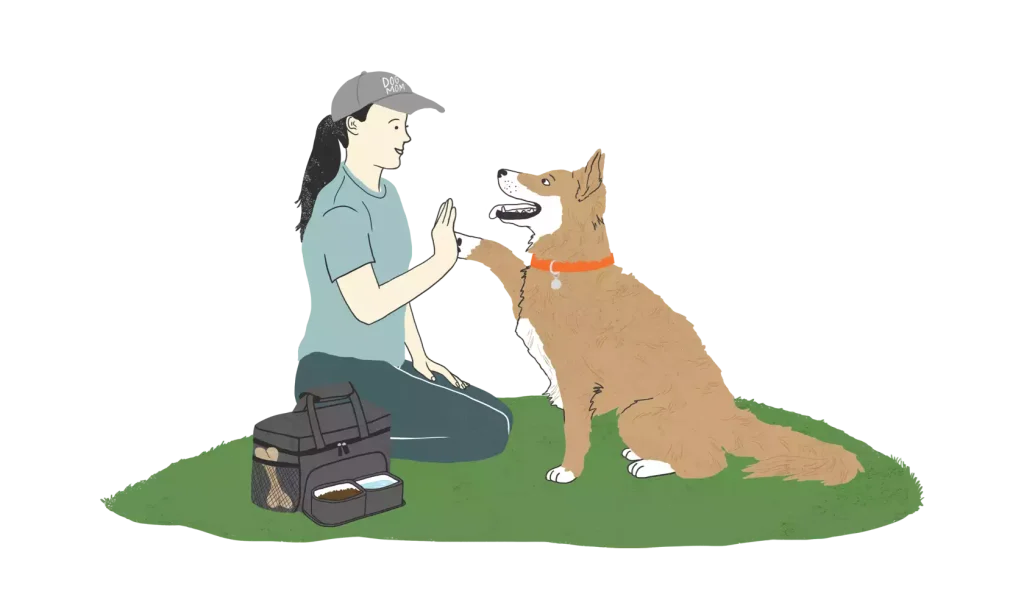Understanding the Benefits of Socialization Techniques for Puppies

The Importance of Socialization for Your Puppy
Bringing a new puppy into your household is a joyous milestone, but it comes with a significant responsibility: ensuring your puppy is properly socialized. Effective socialization goes beyond mere familiarity with humans and other pets; it lays the foundation for a balanced personality and emotional wellbeing. Understanding the nuances of puppy socialization can vastly enhance your furry friend’s adaptability, leading to a happier life for both you and your pet.
Puppies are naturally curious, and their early experiences are crucial for their behavioral development. Improved behavior, for instance, is one of the most significant benefits of proper socialization. A well-socialized puppy is less likely to lash out out of fear or anxiety, as they are accustomed to various stimuli in their environment. This reduces common behavioral issues such as excessive barking, chewing, or aggression, making your canine companion much easier and more enjoyable to live with.
Equally important is the reduction of fear. Puppies that are exposed to a variety of sights, sounds, and social situations are generally less skittish as they grow. For example, if your puppy is introduced to bustling areas like dog parks or pet-friendly cafes early on, they learn to adapt to these environments, which diminishes anxiety during future outings. Conversely, a puppy that hasn’t had such exposure may find the same places overwhelming, leading to reactive behaviors.
Moreover, socialization contributes to enhanced learning. Puppies who routinely interact with other dogs and humans tend to be more receptive to training commands and new experiences. This is crucial, as they can benefit from learning obedience skills and engaging in fun activities such as agility training or even just basic leash manners. For instance, attending a puppy training class can be a dual opportunity for socialization and skill acquisition, setting the stage for a well-disciplined adult dog.
Participating in a variety of socialization activities, such as arranging playdates with other well-behaved dogs, enrolling in obedience classes, or frequent visits to dog parks or pet-friendly venues can significantly influence your puppy’s social development. These interactions do not just teach them how to behave; they promote a world of exploration and confidence. Additionally, exposing your puppy to different sights—like bicycles, strollers, or new terrains—helps them adjust to the many changes they will encounter throughout their lives.

In the coming sections, we will delve deeper into effective socialization techniques designed specifically for puppies. By applying these methods, you can anticipate the long-lasting positive impacts on your dog’s character and demeanor. Join us in uncovering the vital aspects of puppy socialization, and learn how to transform your pup into a well-rounded and adaptable companion. The journey promises to be rewarding—for both you and your new best friend.
DISCOVER MORE: Click here to learn the myths and truths about specific breed animal adoption
Exploring Effective Socialization Techniques
A puppy’s early experiences can have a profound impact on their future behavior and temperament. To maximize these crucial developmental stages, implementing effective socialization techniques is key. Engaging in regular socialization activities not only teaches your puppy proper manners but also enriches their life and builds their confidence. Let’s dive into some proven techniques to help your puppy thrive in a socialized world.
Structured Playdates
One of the simplest yet most effective socialization techniques is arranging structured playdates with other well-behaved dogs. This setting allows your puppy to learn essential social cues while interacting in a controlled environment. Here are some elements to consider for successful playdates:
- Choose compatible dogs: Select dogs with similar energy levels and temperaments to avoid overwhelming your puppy.
- Supervise interactions: Closely supervise all interactions to prevent aggressive behavior or bullying.
- Limit the duration: Keep play sessions short and engaging to maintain your puppy’s interest and prevent fatigue.
Such experiences help your puppy to recognize different play styles and communicate effectively with their peers, ultimately shaping their social demeanor.
Puppy Training Classes
Another excellent avenue for socialization is enrolling your puppy in puppy training classes. These classes provide a framework for learning, coupled with the added benefit of meeting new dogs and people. Here’s why puppy training classes are invaluable:
- Professional guidance: Trainers offer expert advice on socialization, ensuring your puppy learns appropriate behaviors.
- Safe environment: Classes create a safe, controlled setting where puppies can interact with their peers under supervision.
- Structured learning: Socialization doesn’t just occur during breaks; it happens during structured activities that challenge the puppy and promote learning.
By participating in these classes, your puppy will develop a better understanding of their own body language, enhancing their interaction skills in diverse situations.
Diverse Experiences
Beyond playdates and formal training, exposing your puppy to various situations and environments is crucial for their development. Consider the following experiences:
- Frequent outings: Take your puppy on car rides and visits to bustling areas, such as pet-friendly stores or local parks.
- Exposure to different stimuli: Introduce them to unfamiliar sounds like vacuum cleaners or lawnmowers, along with sights like bicycles or children playing.
- Routine social encounters: Encourage interactions with various people, from children to the elderly, which helps your puppy develop a comprehensive understanding of different social dynamics.
Through these diverse experiences, your puppy becomes more adept at managing the surprises that life brings. The goal is to create a confident and curious canine who not only enjoys social interactions but also feels secure when faced with novel situations.
As we advance in our exploration of socialization techniques for puppies, we will uncover advanced strategies that can further assist you and your puppy on this exciting journey. Understanding the benefits of these techniques will not only help your puppy develop into a well-adjusted adult dog but will also strengthen the bond between you two, setting the stage for a fulfilling companionship.
Understanding the benefits of socialization techniques for puppies is essential for fostering well-rounded, confident dogs. Proper socialization goes beyond just letting a puppy play with other dogs; it involves exposing them to various environments, sounds, people, and animals to help mitigate fear and anxiety later in life. In fact, studies have shown that puppies who undergo early and diverse socialization experiences are less likely to exhibit behavioral issues as adults.
Moreover, socialization plays a crucial role in establishing a healthy relationship between the puppy and its owner. Positive interactions during the critical developmental stages help build trust and attachment, ensuring that the puppy grows to be a loyal and well-behaved companion. Additionally, socialization enhances a puppy’s adaptability in unfamiliar situations, making outings, vet visits, and new experiences less stressful for both the dog and the owner.
One of the striking benefits of implementing effective socialization techniques is the promotion of good manners and positive behavior in public settings. Puppies that are socialized properly learn how to behave around people, children, and other pets. This understanding lessens the chances of aggression or fear-based reactions, leading to smoother interactions in various social settings throughout their lives.
Ultimately, investing time in socializing a puppy yields lifelong benefits that include a happier, more outgoing pet who is integrated seamlessly into the family dynamic and community. By understanding and applying these techniques, owners can significantly influence their puppy’s future behavior and emotional well-being.
| Type of Socialization | Key Benefits |
|---|---|
| Exposure to People | Promotes friendliness and reduces fear of strangers. |
| Interactions with Other Dogs | Teaches appropriate play behaviors and social cues. |
| Variety of Environments | Increases confidence and adaptability. |
| Exposure to Sounds | Helps to reduce noise phobias and anxiety. |
LEARN MORE: Click here to discover the impact of virtual training on your pet
Enriching Socialization Activities
In addition to structured playdates and training classes, engaging your puppy in enriching socialization activities can further enhance their development. These experiences not only boost their confidence but also expose them to a variety of environments, helping them become well-rounded companions. Here are some compelling activities that can significantly contribute to your puppy’s socialization journey.
Group Outings
Group outings present an opportunity for your puppy to interact with a diverse range of people and pets outside of the home environment. Engaging in group walks in local parks or participating in community events can be immensely beneficial. Here are key points to remember:
- Introduce leash manners: Use these outings as an opportunity to teach your puppy proper leash etiquette while encountering other dogs and distractions.
- Practice obedience commands: Utilize commands learned in training to help your puppy stay focused and responsive during the outing.
- Encourage positive interactions: Reward your puppy with treats and praise when they interact calmly with new people and dogs.
Such group experiences provide a dynamic learning environment where your puppy can practice social skills, all while forging positive associations with new scenarios.
Enrichment Activities at Home
Socialization can be enriched in the home environment as well. Implementing activities that stimulate your puppy’s senses can build confidence and familiarity. Consider the following:
- Introduce toys with different textures: Toys made of various materials can expose your puppy to new sensations.
- Incorporate interactive games: Activities like hide-and-seek or puzzle toys can encourage your puppy to think critically while remaining comfortable in a familiar setting.
- Invite friends over: Regular social interactions with visitors can help normalize encounters with strangers and reduce anxiety.
These home-based enrichment techniques allow your puppy to explore safely, enabling them to become more adaptable in different situations.
Field Trips to Various Environments
Planning field trips to diverse environments is another excellent way to facilitate socialization. By exposing your puppy to different surroundings, they learn to adapt to new experiences. Consider the following environments:
- Pet-friendly cafes or restaurants: Bring your puppy along to learn how to behave in public spaces. Make sure they are well-socialized and comfortable around people.
- Nature trails: Introduce your puppy to the sounds of rustling leaves, birds, and other wildlife, broadening their sensory vocabulary in an ever-changing outdoor environment.
- Doggy daycare: If available, a well-managed doggy daycare can provide various socialization opportunities with supervision, promoting healthy interactions.
By venturing beyond the usual routine, your puppy can learn coping mechanisms for unfamiliar settings, ultimately leading to a more confident disposition.
As we continue exploring additional socialization techniques, it’s crucial to remain patient and observant. Each puppy has its unique timeline for development, and keeping a positive mindset can help embrace their learning journey. Through these enriching experiences, you set the groundwork for a well-adjusted adult dog, proficient in handling the complexities of life with grace and confidence.
DIVE DEEPER: Click here for expert tips on crate training!
Conclusion
In conclusion, understanding the benefits of socialization techniques for puppies is essential for fostering well-behaved, confident dogs that thrive in various environments. As demonstrated throughout this article, the key to effective socialization lies not only in structured activities, such as obedience classes and playdates, but also in enriching experiences that expose puppies to a rich tapestry of sights, sounds, and interactions.
Engaging in group outings, enriching home-based activities, and taking field trips to diverse locations can effectively enhance your puppy’s social skills and adaptability. These experiences not only build their confidence but also strengthen the bond between you and your furry companion, laying the groundwork for a positive relationship. Moreover, socialized puppies are known to exhibit fewer behavioral issues, making them more enjoyable companions as they mature.
It’s worth noting that socialization is not a one-time event but a continuous process. Each puppy has its unique timeline for development, and patience is key. Be observant of their responses and adjust socialization techniques accordingly to ensure the best outcomes. By committing to a thoughtful approach in your puppy’s socialization journey, you ultimately cultivate a harmonious and well-adjusted adult dog capable of navigating the complexities of life.
As you embark on this rewarding endeavor, remember that the efforts you put into socialization today will lead to a lifetime of joy and companionship in the future. Don’t hesitate to explore new methods and consult professional trainers if needed—your puppy’s well-being depends on it.


